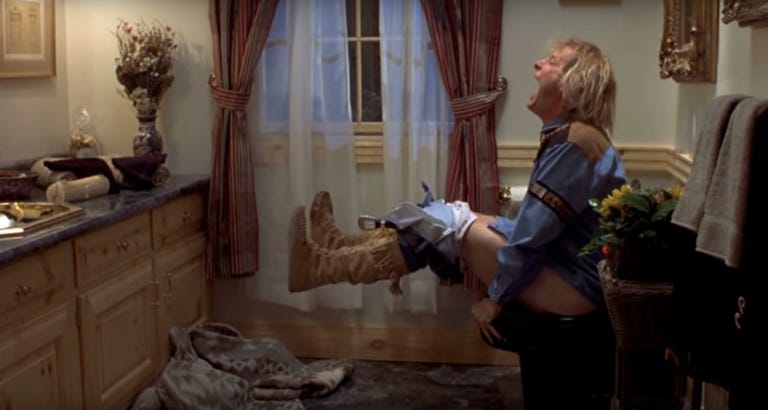If Your Poops Are Painful, You Could Have This Common Condition


Life is all about the little joys: getting a free cup of coffee from a waiter, finishing the Sunday morning puzzle, a stranger giving you a friendly smile on the train ride home. One of these little joys is a good bowel movement. You usually get off the toilet feeling lighter and brighter than you did going in, and it puts that little extra pep in your step you need to get through the day.
But sometimes, pooping can leave you in serious pain — and if this is the case, you may have anal fissures.
Anal fissures may sound serious, but they’re actually relatively common. In fact, they affect about 8% of the U.S. population, says Michael Rice, MD, gastroenterologist at the University of Michigan’s Michigan Medicine Gastroenterology Clinic.
Here’s what causes anal fissures, why you get them, and how to prevent them.
What is an anal fissure?
“An anal fissure is a small tear in the thin lining of the anal canal,” says Rice. “They are typically associated with pain and mild bleeding during bowel movements.” The pain is usually sharp and severe, and it can persist for hours after the bowel movement.
If blood is present, it’s typically in small amounts. You may see it on the tissue paper, on the stool itself, and/or in the toilet bowl, says Rice.
What causes anal fissures?
Anal fissures are usually “the result of direct trauma to the anal canal associated with passage and straining from hard and dry stools or recurrent diarrhea,” says Rice.
A diet high in constipating foods, such as high-protein shakes/supplements, eggs, meat or processed foods, can put you at risk. So can certain lifestyles, “such as being sedentary, as this generally increases your risk of constipation,” says Christine Lee, MD, gastroenterologist at the Cleveland Clinic.
But it’s not just poop problems that can cause anal fissures. If you receive anal sex or use toys like butt plugs, that could potentially lead to small tears as well, says Rice. So can overly aggressive wiping, “use of scented wipes that contain alcohol, and some medications such as excessive use of NSAIDs,” adds Lee.
What is the treatment for anal fissures?
If you suspect you may have an anal fissure, you unfortunately won’t be able to see it for yourself. You need to go to the doctor and get a digital rectal examination, says Rice. If necessary, your doctor will also administer an anoscopy, which involves putting a small, light-equipped up your anus so it can be examined in more detail.
Luckily, most anal fissures heal on their own, provided you follow three easy steps.
1) Take stool softeners. You can do this by upping your dietary fiber intake (check out our suggestions for foods that are great sources of fiber here) or using an over-the-counter stool softener containing docusate like Colace ($14.66, Amazon.com, buy it here).
2) Start taking Sitz baths. Take a shallow, warm bath two to three times a day for 15 minutes, ideally right after a bowel movement. This will help relax your anal sphincter spasm by increasing blood flow to the area and relieving discomfort.
3) Use an OTC pain cream. “Most contain anesthetics such as lidocaine. However, if you’re using a topical cream that also contains a steroid, limit this to less than two weeks to avoid thinning the lining of the anal tissue, which increases the risk for further trauma to the area,” says Rice.
What if I get recurring anal fissures?
Most anal fissures should heal after just a few weeks, but if you have recurring anal fissures or a fissure that lasts for 4-6 weeks, that could be the sign of a chronic inflammatory bowel disease such as Crohn’s disease, or even anal cancer. So if your condition doesn’t improve, “your doctor may recommend further evaluation with a colonoscopy,” says Rice.
Your doctor may recommend additional medical therapies such as a topical cream or even Botox. “When injected into the anus, this will temporarily paralyze the internal anal sphincter muscle for up to three months to promote healing of the fissure,” says Rice. In extreme cases, a doctor may even recommend surgery, but this is fairly uncommon.
How to prevent anal fissures
To prevent anal fissures, you want to avoid the things that may trigger them, such as large hard bowel movements, diarrhea, and straining from constipation.
Your best bet to limit constipation is to consume a high-fiber diet and stay hydrated.
“Consider increasing your fiber intake (targeting 25g of dietary fiber daily),” says Dr. Rice.
Source: Read Full Article




